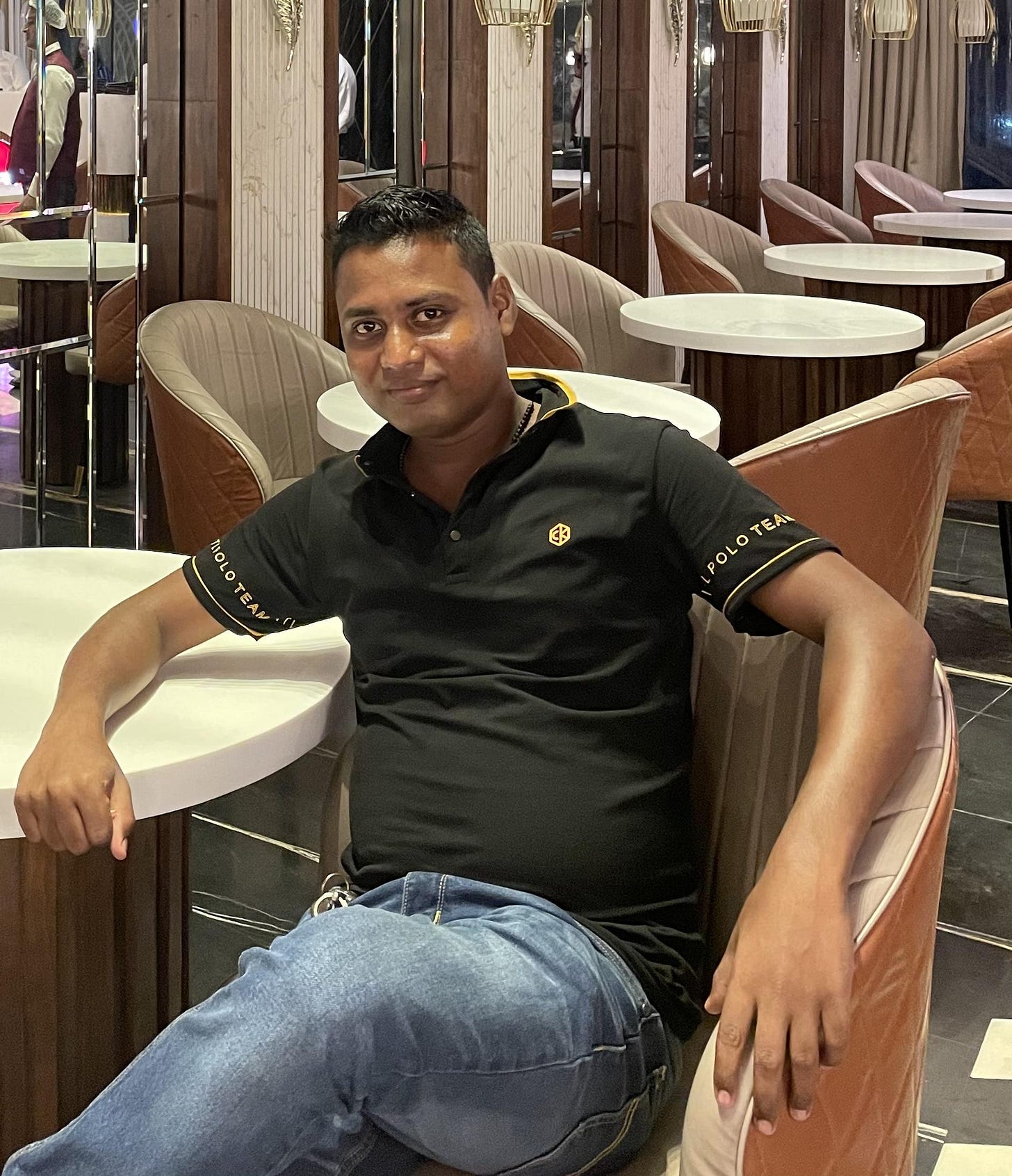Beyond the Bazaar: A Hawker’s Life in Kolkata
Tracking Indian Youth Workers: Sunny
The Tracking Indian Youth Workers Media Fellowship presents the next in a series of stories capturing the lives of young workers across India.
Meet Sunny, a 26-year old street hawker in Kolkata. Sunny describes the daily struggles of his life as a hawker, from long working hours and unpredictable sales to the harsh realities of police raids and bribes. Despite being part of a hawkers' union, he remains uncertain about its actual benefits. His resilience shines through as he navigates the uncertainties of his profession, driven by the need to survive and provide for his family.
“At the end of the day, it’s about survival. I’ve had to struggle all my life, and I can’t stop now. I have a family to take care of. So, even when it’s tough, I just keep going. It’s what I know, and I have no choice but to keep pushing forward.”
Read his full story below. Profile by Roshni Veronika Mallick.
Roshni: Sunny, thanks for sitting down with me today. Could you tell me a little bit about where you grew up?
Sunny: I grew up in a small bustee near Ganga Ghaat in South Kolkata. It’s an informal settlement, pretty basic—water stored in oil containers, pigs on verandahs. Not a place for luxury, but it’s home. Most children in my neighborhood never went to school because their families couldn’t afford it. Life was tough, but that’s where I learned everything I know.
I was the fourth child, and I spent most of my early years playing by the river. My parents didn’t focus on my education. My mother didn’t pay much attention to it, and my father, who sold tea, was always busy working. My older sister, just 15 at the time, was already engaged, so most of the family’s focus was on her.
School never really felt important to me. I did go to school, but I didn’t really attend much. Later, when I enrolled at Adarsh Hindi High School, I only went because I needed the Class 10 certificate. I thought it would help me get a government job, but that environment was such a shock to me. I wasn’t used to studying, and the English language was like a foreign barrier. I still feel that English was a big reason why I failed my board exams. It’s like pulling a frog from a well and throwing it into the ocean. No way it could survive.
Roshni: That must have been frustrating. What happened after you left school?
Sunny: Well, my father passed away when I was 16—suddenly, from a brain hemorrhage caused by sunstroke. After that, my older brother and I had to figure out how to support our family. We bought a small space in New Market and started selling bags. Fakes of brands like American Tourister and Chanel. That’s how we became hawkers.
Sunny
Roshni: It seems like you had to grow up really fast. What’s a typical day like for you now?
Sunny: My day starts at 9 a.m. and ends around 10 p.m. It’s a 13-hour shift. Through the sun, the rain, the cold—always working. Sometimes we sit for hours before making a single sale. The monsoon season is especially tough. Some days, I don’t sell anything at all. On those days, I get really frustrated. The whole place floods, and we sit with our feet in dirty water, waiting for something to happen. It’s hard.
During the busy seasons like Puja or Christmas, it’s overcrowded, chaotic. There are stampedes, theft, pickpockets. Expenses also shoot up—storage fees, wholesaler costs, everything gets more expensive. It’s always a balancing act.
Roshni: Do you face any trouble with the authorities while working?
Sunny: Oh, all the time. We call it halla—police raids. One night, I got a call at 1 a.m. saying there was a raid. When I got to my stall, the tarpaulin was torn, and all the bags we’d carefully stacked were lying on the ground. It’s always like this—because they say we’re encroaching on illegal land. Sometimes, we can pay a bribe to settle things, but the whole process is so frustrating. No one ever tells us the rules. If you go to the municipal corporation for help, they just ignore you.
I’m a member of a hawker’s union, but I don’t know much about its inner workings. I pay a monthly fee of ₹500 and show up at rallies or meetings when needed. I don’t even know who the leaders are. It’s just something we’re expected to do. I’m not sure how much it actually helps us.
Roshni: It seems like you’ve faced a lot of challenges, but you keep going. What keeps you motivated through all of this?
Sunny: At the end of the day, it’s about survival. I’ve had to struggle all my life, and I can’t stop now. I have a family to take care of. So, even when it’s tough, I just keep going. It’s what I know, and I have no choice but to keep pushing forward.
Roshni: I admire your resilience, Sunny. Thank you for sharing your story with me today. I hope things get better for you and your family.
Sunny: Thank you, Roshni. I appreciate it. Life’s tough, but I’ll keep going.
This is an ongoing series of profiles documenting the experiences of young people across India. Stay tuned for more stories from young workers across India. Follow us on social media for more updates.




